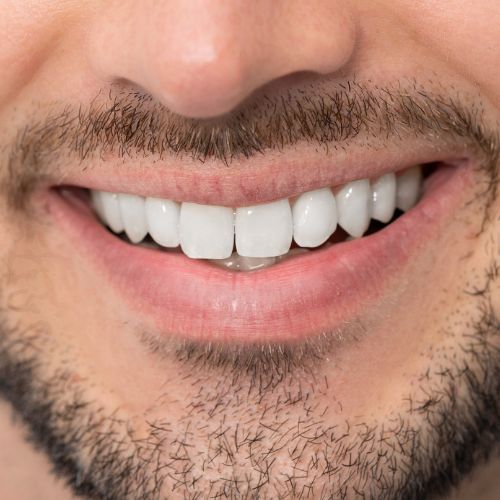- The Root Canal Treatment Process
What to Expect When Getting a Root Canal
A root canal is a dental procedure that has a reputation for being daunting, but it’s actually a safe and effective way to relieve pain and save a damaged or infected tooth. At Park Boulevard Family Dentistry, we understand that the idea of a root canal can make people anxious. As the best dentist in Pinellas Park, FL, we’re here to walk you through the root canal treatment process so you can feel more confident and informed about your dental care.
If you’re experiencing severe tooth pain, especially when chewing or when exposed to hot or cold temperatures, you might need a root canal. Dentists commonly perform root canals when the pulp (the inner tissue) of a tooth becomes infected or inflamed due to decay or injury. Here’s what you can expect during the root canal treatment process.
Step 1: Consultation and Diagnosis
Before any treatment begins, your dentist will perform a thorough examination to determine if a root canal is necessary. During this visit, they will ask about your symptoms, such as tooth pain, sensitivity to temperature, or swelling around the affected area. The dentist will then take an X-ray to assess the extent of the damage or infection. Based on the diagnosis, the dentist will recommend whether a root canal is the right treatment for you.
If you need a root canal, your dentist will schedule the procedure as the next step. Dentists can often complete root canals in a single appointment, though more complex cases may require multiple visits.
Step 2: Numbing the Area
On the day of your root canal, your dentist will begin by numbing the area around the affected tooth with a local anesthetic. This ensures that you’re completely comfortable throughout the procedure and experience minimal pain or discomfort. Many patients find that the anesthesia makes the process feel similar to getting a filling. In some cases, if you’re particularly anxious, your dentist may offer sedation options to help you relax during the procedure.
Step 3: Accessing the Tooth’s Pulp
Once the area is numb, your dentist will create a small opening in the crown (the top part) of the tooth. This opening gives access to the inner chamber of the tooth, where the pulp, nerves, and blood vessels reside. Dentists remove the infected or damaged pulp to prevent further infection and preserve the health of the surrounding tissue.
Step 4: Cleaning and Shaping the Root Canals
After accessing the pulp chamber, your dentist will carefully remove the infected or damaged pulp tissue from the tooth’s interior. Dentists thoroughly clean and shape the root canals to eliminate all debris and bacteria. This step is essential to avoid any further infection and to prepare the tooth for sealing. Dentists use specialized instruments and irrigation solutions to disinfect the canals during the cleaning process.
In most cases, your dentist will also place a medication inside the tooth to eliminate any remaining bacteria and prevent future infection.
Step 5: Filling the Root Canals
After cleaning and shaping the canals, your dentist will fill them with a biocompatible material called gutta-percha. This material seals the root canals to prevent bacteria from re-entering and causing another infection. After filling the canals, your dentist will seal the opening in the crown of the tooth with a temporary filling.
At this point, you may need to return for a second appointment to place a permanent crown over the tooth to restore its strength and function. However, in some cases, if the tooth is stable enough, your dentist may place a permanent filling right away.
Step 6: Placing a Permanent Crown
In many cases, after a root canal, your tooth will need a crown to restore its structure and protect it from further damage. Since the dentist removes the pulp, which may weaken the tooth, they will place a crown to provide necessary support and help the tooth function like a natural one. Your dentist will take impressions of your tooth to create a custom crown that fits perfectly.
At Park Boulevard Family Dentistry, we offer high-quality crowns that blend seamlessly with your natural teeth, both in appearance and strength. Once the crown is ready, your dentist will place it over the treated tooth, securing it in place and ensuring that it functions well when you chew.
Step 7: Recovery and Aftercare
After the procedure, you may experience some mild discomfort or sensitivity in the treated tooth, especially when chewing or when exposed to temperature changes. This is normal and should subside within a few days. Over-the-counter pain relievers can help alleviate any discomfort during your recovery.
It’s important to follow your dentist’s aftercare instructions to ensure proper healing. This may include avoiding chewing on the treated tooth for a day or two and maintaining good oral hygiene habits. Be sure to brush and floss gently around the treated area to keep it clean and free from infection.
Why Choose Park Boulevard Family Dentistry for Your Root Canal?
At Park Boulevard Family Dentistry, we prioritize your comfort and care. Our team of experts is dedicated to providing the best possible dental treatment, and we’ll guide you through every step of the root canal process. As the best dentist in Pinellas Park, FL, we use advanced technology and techniques to make your root canal experience as smooth and painless as possible.
If you’re experiencing tooth pain or think you might need a root canal, don’t wait. Schedule an appointment with us today, and let us help you preserve your natural teeth and get you back to living pain-free. Our compassionate team is here to ensure that your treatment is comfortable, efficient, and effective.
Contact Us
A root canal may sound intimidating, but it’s a highly effective and common procedure to save a tooth and relieve pain caused by infection. The process is straightforward, and with modern dental techniques, most patients experience minimal discomfort and a smooth recovery. If you’re in need of a root canal or have any concerns about your oral health, don’t hesitate to reach out to the best dentist in Pinellas Park, FL. At Park Boulevard Family Dentistry, we’re here to help you achieve a healthy, pain-free smile!










